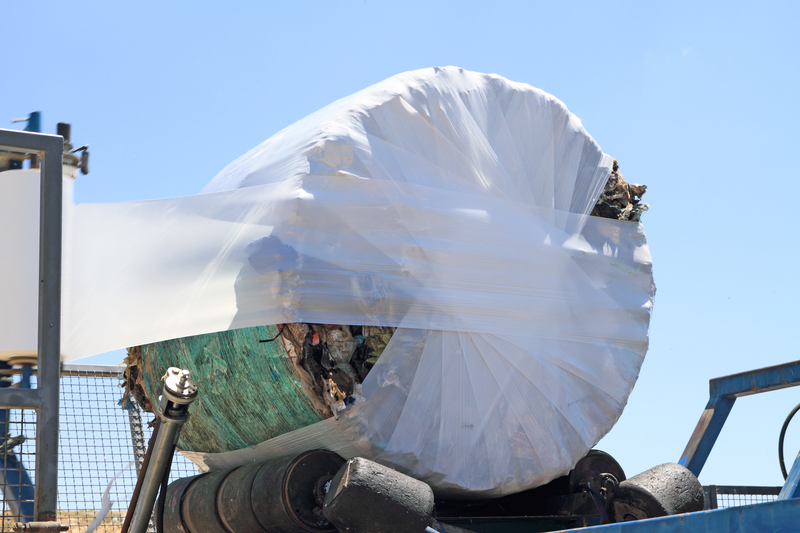Revolutionize Recycling Practices in Schools with These Tips
In today's rapidly changing world, recycling in schools has become more critical than ever before. Not only does it help reduce waste, but it also educates the next generation on the importance of environmental stewardship. However, traditional approaches to recycling in educational settings are often outdated and ineffective. If you want to create a transformative, eco-friendly environment, these innovative recycling tips for schools will help you and your students make a lasting impact.
Why Reinvent School Recycling?
*Revolutionizing recycling habits in schools* does more than keep campuses clean. It equips students with a lifelong understanding of sustainability, improves waste management efficiency, and can even enhance the school's reputation within the community. Here's why modernizing your school's recycling efforts is essential:
- Reduces landfill waste and greenhouse gas emissions
- Teaches sustainability and environmental responsibility to students
- Leads to potential cost savings on waste disposal
- Engages students and staff in a communal project
- Creates a healthier, greener learning environment
Assessing Your Current School Recycling Program
Before making changes, it's important to evaluate existing recycling practices in your school. Answer the following questions:
- Are recycling bins accessible and clearly labeled?
- Does your school separate different materials (paper, plastic, metal, glass)?
- How aware are students and staff of what can and cannot be recycled?
- Is there a program in place to monitor and improve recycling rates?
By identifying gaps, you can pinpoint exactly where enhancements are most needed.

Innovative Tips for Revolutionary School Recycling
1. Launch an Engaging Recycling Education Initiative
Education is key to successful recycling. Plan regular workshops, assemblies, or classroom discussions focusing on the importance and impact of recycling. Use videos, interactive games, and real-world examples to inspire students.
- Invite local environmental experts to speak
- Organize field trips to recycling facilities
- Create educational posters and digital content for school corridors and classrooms
*When students understand why recycling matters, they are far more likely to take it seriously!*
2. Implement Clear Sorting Systems
Often, confusion about what can be recycled leads to contamination. Make it easy by introducing a color-coded, clearly labeled bin system.
- Blue bins: Paper and cardboard
- Green bins: Plastic and cans
- Yellow bins: Glass
- Red bins: Non-recyclables
Place explanatory posters (with photos and icons for younger children) above each bin to minimize errors. Regularly monitor bins and provide feedback to the school community.
3. Appoint Responsible Recycling Ambassadors
*Peer influence is powerful.* Select student volunteers or form a Green Team to serve as recycling ambassadors. These enthusiastic students can monitor bins, educate classmates, and lead by example.
- Arrange regular clean-up challenges or recycling competitions
- Reward the best performing classes with eco-friendly incentives
Having student leaders take charge gives the program extra energy and visibility.
4. Integrate Recycling into the Curriculum
To truly revolutionize recycling in schools, incorporate sustainability topics into everyday lessons:
- Assign projects that explore recycling statistics and waste reduction
- Use math lessons to analyze recycling rates
- Host creative writing assignments about the journey of recyclable materials
When students see recycling as part of their studies, it will remain top of mind throughout the day.
5. Leverage Technology for Better Recycling
Modern recycling innovations make waste management easier than ever. Try out these tech-friendly solutions:
- Recycling tracking apps for students and staff to monitor progress
- QR codes on bins linking to recycling information and educational videos
- Smart bins that notify the custodial staff when they are full
Tech not only simplifies recycling but also engages today's tech-savvy students.
6. Launch a School-Wide Upcycling Competition
Encourage students to think creatively about how to reuse materials before discarding them. An annual upcycling contest can challenge students to create art, science projects, or even functional items from waste.
- Display winning projects in prominent school areas
- Share entries on the school's website and social media
This fosters both environmental awareness and creative thinking.
7. Build Partnerships with Local Recycling Centers
Work directly with community waste management and recycling facilities. Arrange for:
- Regular pick-ups of sorted recyclables
- Visits from experts to assess your recycling system
- Special recycling drives for e-waste, batteries, or textiles
Such partnerships provide professional insights and ensure more materials are correctly processed.
8. Include Recycling in School Events and Cafeterias
Events and dining areas generate large volumes of waste. Reinvent how your school manages this:
- Use compostable plates and cutlery at events
- Provide multiple recycling and compost bins in the cafeteria
- Post daily or weekly stats on waste reduction achieved in the lunchroom
*Visible results motivate everyone to participate and improve!*
9. Communicate Progress and Celebrate Successes
Transparent, regular communication is vital for maintaining momentum. Offer positive reinforcement every time your recycling program hits a milestone.
- Share updates in the school newsletter and assemblies
- Display infographics and charts showing improvement in recycling rates
- Host an annual Green Awards ceremony for students and staff
Recognition encourages people to keep pushing for a greener school.
Overcoming Common Recycling Challenges in Schools
Addressing Contamination
One of the leading issues in school recycling systems is contamination, where non-recyclable materials end up in recycling bins. Solutions include:
- Ongoing education sessions about proper sorting
- Simple, visual guides above every recycling station
- Regular feedback and reminders via school announcements
Engaging Reluctant Participants
Not all students or staff may be equally enthusiastic about recycling. Strategies to engage them:
- Collaborative projects that encourage teamwork
- Incentives or rewards for positive change
- Personal stories highlighting the local and global impact of recycling
Limited Resources and Budget
Budget constraints are common in schools, but effective recycling doesn't have to be costly. Try:
- Repurposing old containers as recycling bins
- Partnering with local businesses or community groups for sponsorship
- Applying for grants focused on sustainability
Often, the most innovative recycling programs in schools start with modest resources and lot of creativity.
Long-Term Benefits of Improved Recycling in Schools
The enduring impacts of modernizing school recycling initiatives go far beyond cleaner hallways. Here are key benefits:
- Environmental impact: Reduced landfill contributions and lower carbon footprints
- Educational value: Better student understanding of ecology and sustainability
- Community involvement: Stronger ties with parents, local organizations, and businesses
- Financial savings: Less waste means smaller disposal costs
- Student empowerment: Young people become change agents in their communities

Getting Started: A Checklist for Schools
- Form a dedicated green committee (students, staff, parents)
- Audit existing recycling and waste systems
- Set realistic, measurable goals
- Secure resources and community support
- Launch engaging recycling education campaigns
- Implement a streamlined, well-labeled bin system
- Integrate recycling into the school culture and curriculum
- Monitor, adjust, and celebrate progress regularly
Conclusion: Empower Your School to Lead the Recycling Revolution
*Every great environmental movement starts locally.* By adopting these comprehensive strategies, your school can become a model for environmentally conscious education. Revolutionize your recycling practices today -- educate, inspire, and empower students to build a cleaner, more sustainable future.
Ready to take the next step? Begin with just one or two of these tips and watch your school community transform its approach to recycling. The future of the planet is in your hands; let's make sure it starts in our schools!
Take Action Now: Make Your School a Recycling Champion!
Share these tips with your colleagues, students, and parent organizations. Join the global movement to revolutionize recycling in schools by putting these ideas into practice today!